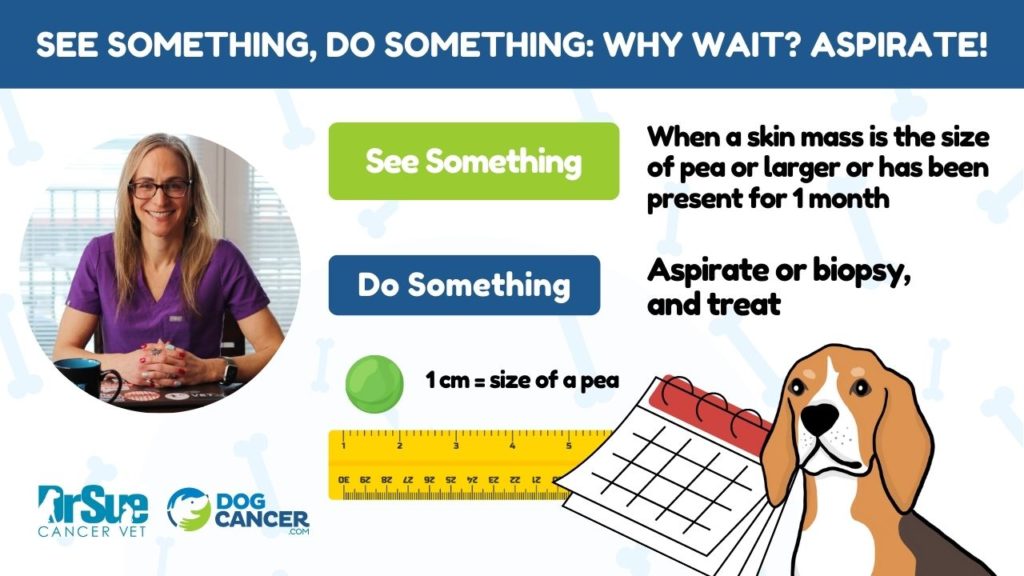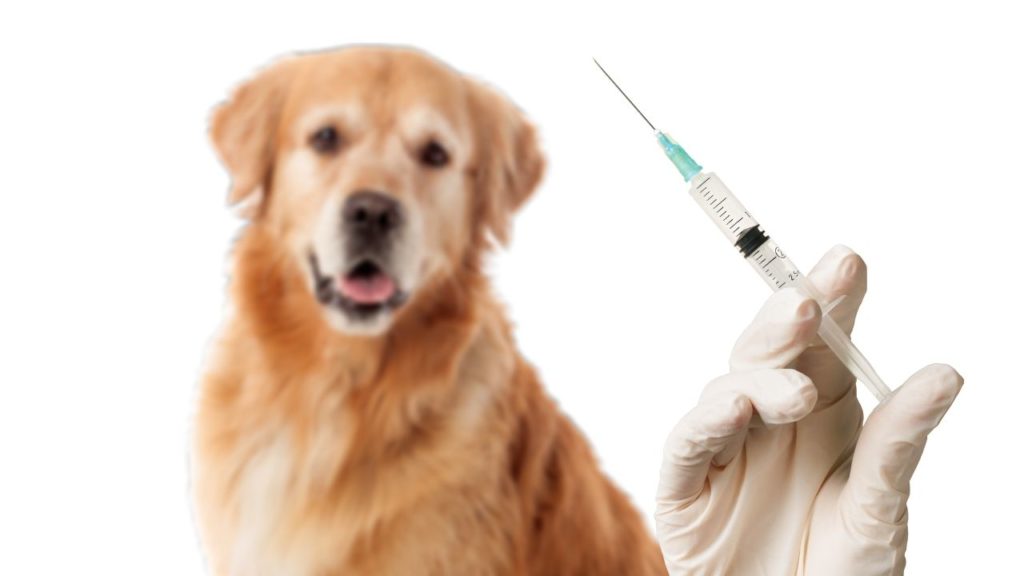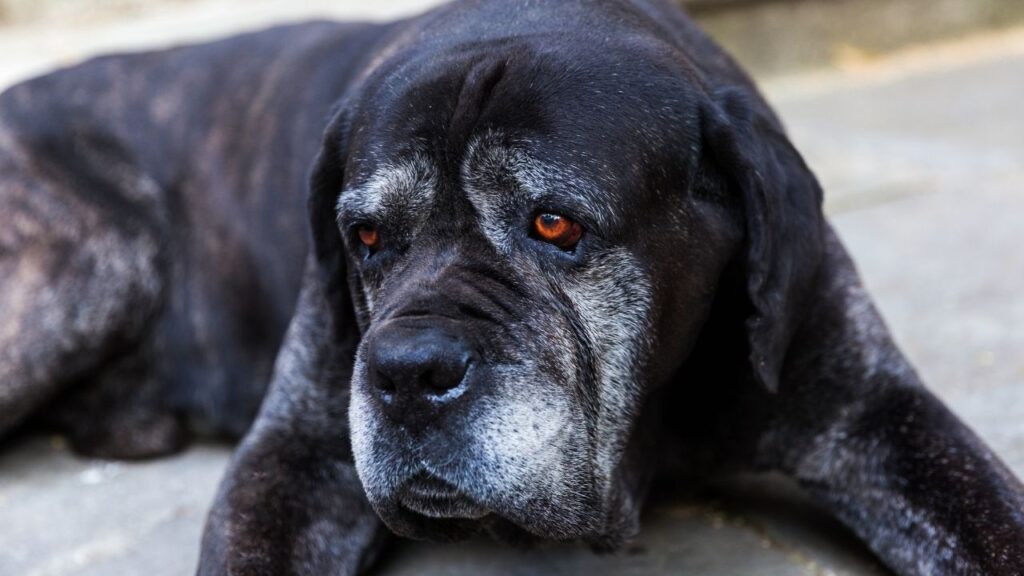Though they may look dangerous, histiocytomas in dogs are benign. These skin tumors are common in young dogs. They typically resolve on their own in a couple of months with limited to no treatment.
Key Takeaways
- You generally do not need to treat histiocytoma in dogs. Most will regress and disappear on their own, usually in two or three months.
- A histiocytoma that becomes infected or is otherwise irritating may need to be surgically removed rather than waiting for it to disappear.
- Although canine cutaneous histiocytoma is a tumor — or an abnormal growth — it does not spread to other parts of the body. For that reason, most would agree it cannot be called cancer.
- Histiocytomas on a dog are usually raised, roundish, red or pink, “button-like,” hairless masses growing on the skin. They are generally moderately firm. Most of them don’t bleed very much unless they are irritated or infected.
- Histiocytomas are not usually painful in dogs, though some dogs will lick and chew at them if they become irritated.
- Canine cutaneous histiocytomas are almost always benign, and rarely malignant.
What Is Canine Cutaneous Histiocytoma?
Histiocytomas, or canine cutaneous histiocytomas, sound much worse than they are.
- “cutaneous” means relating to the skin
- “histio” refers to a specific type of inflammatory cell
- “cytoma” loosely means benign tumor
Put all together, canine cutaneous histiocytoma is a benign tumor of the skin in dogs.
The When and Where of Histiocytomas in Dogs
A fairly common, non-threatening tumor, histiocytomas generally affect dogs under three years of age. These tumors can occur anywhere on the outside of the body but are most common on the head, ears, or legs.
Are Cutaneous Histiocytoma in Dogs Dangerous?
While histiocytomas do develop or “pop up” rapidly, they tend to be locally isolated and rarely metastasize (or spread elsewhere in the body).
Histiocytomas typically resolve on their own without treatment. They may need to be removed if they persist longer than three months, become ulcerated or infected, or are irritating to the pet.
It’s important to work closely with your veterinarian to confirm the diagnosis with a cytology if he or she suspects your dog has a histiocytoma. This is because there are other, more serious non-cancer histiocytic diseases that can resemble histiocytomas, and you will want to be sure you get an accurate diagnosis so you can start treatment if it’s needed.
Stats and Facts About Histiocytomas in Dogs
- Histiocytomas are one of the most commonly reported tumors in dogs. Studies have suggested that probably somewhere between 116-337 per 100,000 dogs per year will be diagnosed with histiocytoma.1,2
- Histiocytomas likely account for around 11% of all skin tumors in dogs.1
What Causes Cutaneous Histiocytomas in Dogs
The exact cause of histiocytomas is unknown. Because histiocytes are immune system cells, some researchers suggest that infection or inflammation may initiate the development of histiocytomas, but there is no clear evidence to support this theory.1,3
Risk Factors for Histiocytomas
Young dogs (under 3-6 years) are at the greatest risk of developing histiocytomas.
These tumors can occur in any breed but are more common in: 4
- Brachycephalic breeds (such as Boxers and Bulldogs)
- Doberman Pinschers
- Cocker Spaniels
- Scottish Terriers

Brachycephalic breeds like bulldogs may be at higher risk of getting benign histiocytomas.
Symptoms of Histiocytomas
Many veterinarians will recognize a histiocytoma without difficulty.
- Histiocytomas appear as “button-like” hairless, raised lesions on the skin.
- Most develop as small (<2 cm), solitary tumors that do not cause any discomfort or irritation to the pet.
It’s important to remember that any abnormal growth or mass can be called a tumor in medicine, whether benign or malignant. Just because your dog has a tumor doesn’t mean it is cancer.
There are no other symptoms unless a histiocytoma becomes irritated or infected. If that happens, your dog may pay more attention to it, lick it, or chew it.
Diagnosing Histiocytomas in Dogs
If your veterinarian suspects your dog has a cutaneous histiocytoma, he or she may want to take a sample from the growth for further testing. This may be done as a needle aspirate, a biopsy, or tumor removal.
The cells that make up the mass are then examined under the microscope (called a cytology) to confirm the diagnosis of histiocytoma.
Most histiocytomas are completely benign, and a histiocytoma rarely becomes malignant.3 A cytology is important to do anyway. That’s because there are a few other similar but much less common diseases of the same group of inflammatory cells, which can be severe and need treatment.
If you are worried about these illnesses — or if your veterinarian recommends it – the aspirate and/or biopsy results will help reassure you. Your dog has a much higher chance of having a benign histiocytoma than a more dangerous histiocytosis or malignant histiocytic sarcoma. 3, 5
Prognosis and Staging
Histiocytomas generally carry an excellent prognosis. Most of these tumors will resolve on their own in less than three months.
Treatment for Histioctyomas in Dogs
Most histiocytomas will resolve on their own without further treatment.
Infection of the tumor is the most common complication. Most veterinarians recommend monitoring it at home and keeping the dog from licking or chewing on it to help prevent infection.
In some cases, treatment may be necessary.
Surgery for Histiocytomas
If a histiocytoma does not regress on its own within three months, becomes infected, or otherwise bothers the dog, it may need to be surgically removed.
Once removed, 99% of these tumors will not reoccur at the same location.
For small tumors, cryotherapy may be an option for removal as well.
Chemotherapy
Chemotherapy is unnecessary as most histiocytomas regress independently or can be surgically removed.
Radiation
Radiation treatment is unnecessary as most histiocytomas regress independently or can be surgically removed.
Immunotherapy
Immunotherapy is unnecessary as most histiocytomas regress independently or can be surgically removed.
Vaccine
No vaccine is available for histiocytoma.
Diet
No link between diet and histiocytomas has been found. If your dog is on a healthy diet, there is no need to change if a histiocytoma develops.
Supplements
As histiocytomas generally regress on their own, there is no need for additional supplements.
Integrative Therapies
As histiocytomas generally regress on their own, there is no need for integrative therapies.
The End of Life for Dogs with Histiocytoma
Canine histiocytomas carry a good prognosis and are not considered fatal or life-limiting.
Prevention Strategies
As the cause of these tumors is unknown, there is no evidence now that histiocytomas can be prevented.
Topics
Did You Find This Helpful? Share It with Your Pack!
Use the buttons to share what you learned on social media, download a PDF, print this out, or email it to your veterinarian.






